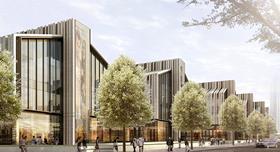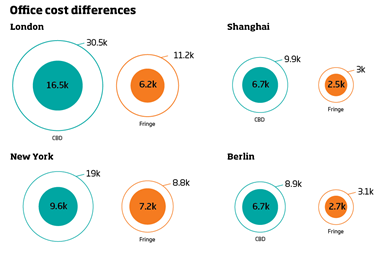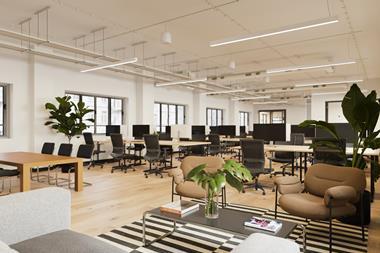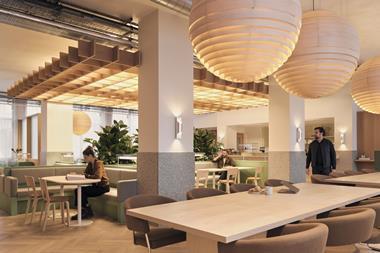From the business centre of the 1980s to the co-working space of the 21st century, the flexible office sector has grown exponentially.
Our flexible office series:
London is leading the way internationally with nearly 1,000 flexible working locations across the city. This is a rise of more than 10% since 2010 and already represents around 5% of total office take-up in the capital. Other cities including New York, Berlin and Shanghai have seen similar rapid growth since 2010. Flexible offices now account for around 8% of global office take-up and I fully expect this to rise.

So what is a ‘flexible office’? In the context of the current workplace trends and reaffirmed by recent research undertaken by DTZ, it is defined as temporary or short-term office accommodation that allows companies to expand when they need to, including more permanent office environments that bring different organisations together in a collaborative environment.
This flexibility in offices is changing the way organisations in many different sectors work. It is no longer sought by the tech, creative and media sectors alone, but by a growing pool of large corporate tenants coming into the flexible office market for the first time. Technology companies may have been first to customise their own unique experience around a core product, but there is a growing expectation that property should work like that too.
At CoreNet Global, and particularly among our UK Chapter members, we have seen the demands of occupiers shift significantly. They want more from their office – more flexibility, more adaptability, more work settings, more spaces for collaboration and more of an experience for their staff and clients. Some also want to share their office with other companies that can contribute to their development and growth through ideas and collaboration – hence the success of companies such as WeWork, which is currently fitting out its largest office in the world, in Moor Place in Moorgate.
To understand where the shift has come from, so we can adapt and respond as an industry, it is worth considering five key commercial forces that are driving the explosive growth in flexible office space. The first is economics and the requirement to reduce costs and increase efficiencies, especially at a time when commercial office rents have risen and taking on offices with room for expansion is no longer economically viable. Then there is simplicity, allowing companies to focus on their core business; location - serviced office and co-working spaces enable flexibility in a period of strong demand for commercial real estate in central business districts; growthand globalisation of the corporate world; and advocacy, which is exemplified by the uptake of flexible working by corporates and governments.
There are also cultural factors behind this trend; entrepreneurshipand the explosion of self-employment; the proliferation of technologyand the growth of digital economy; increasing requirements for connectivity and collaboration, and the growth in professional and corporate networks. Co-working and serviced office spaces help enable these activities.
So what are the opportunities stemming from this growing demand for flexibility? Taking a wider viewpoint, the flexible office industry is playing an integral role in urban regeneration globally, often at the heart of developing successful new areas. Looking at four key schemes – King’s Cross in London, Dumbo Heights in Brooklyn, Factory Berlin and Fuxing Plaza in Shanghai – it can be seen that co-working providers are often early-stage tenants, and can ensure the vital injection of business diversity that stimulates many of the economic and social dynamics that follow.
In Asia, where the flexible office concept is still relatively new, there is enormous potential for growth in established and emerging markets. Developers have observed increasing levels of usage as mobile working becomes more prominent in Asian culture and have set their sights on further expansion. As new cities develop, flexible offices will play an increasingly important role in urban infrastructure.
This trend is not simply about creating open-plan layouts or adding a café. It is about giving people control and flexibility in their environment. It is also about enabling connections and creating a community beyond corporate meetings. It allows people to work in ways that give them choice, meaning and purpose. At a time of global skills shortages when employers are striving to attract and retain the world’s top talent, this matters. Flexible working principles can help surmount a range of challenges, and the values espoused by the industry will become increasingly important.
James Maddock is president of CoreNet Global’s UK Chapter and international director at DTZ






























No comments yet